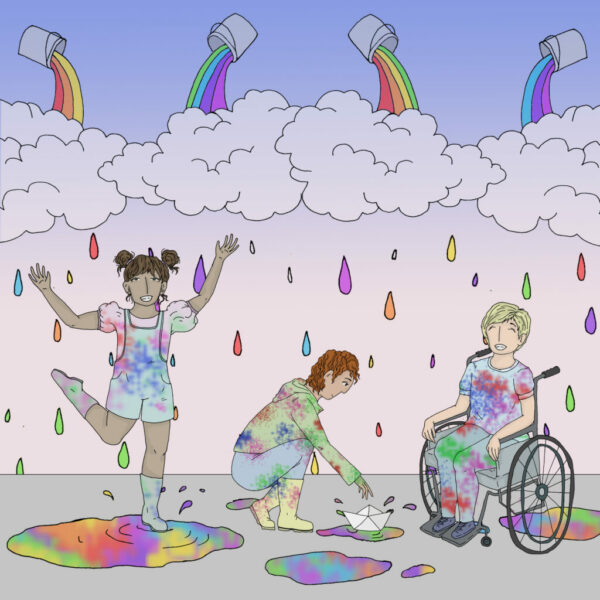AccessArt Value #2
What is our individual responsibility to those around us? What do we do, to encourage or interrupt positivity? How might we enable a more curious and playful approach?
“85% of the men and women who I interviewed remembered an event in school that was so shaming, it changed how they thought of themselves for the rest of their lives. Fifty percent of that 85% percent, half of those people: those shame wounds were around creativity. So fifty percent of those people have art scars. Have creativity scars.” – Brene Brown, Magic Lessons
The statistic from Brene Brown’s research are staggering but not surprising – we all have examples in our own lives of when we have been “stopped” by an often casual comment by someone about the way we express ourselves. These stray comments about creativity seem to cut straight to the quick. For me, it was when I was eight. Until then I had sung out loud happily enough. But then one day, a boy I was sitting next to in assembly at school asked me why my voice had a weird “lining” to it when I sang (I imagine I was out of tune and merrily unaware). So from that day on – I mimed. Happy to say I’m over it now and singing to my baby daughter proved to me I could hold a tune “enough” and that was all that mattered.
But many of us are stopped before we even get started, and we don’t recover. Luckily the opposite is also true, and we can SO easily be enabled by others, and enable others, by thoughtful, careful approach.
It’s easy to fall into the mindset whereby we wait for things to improve, but there is a greater reality at play: while we actively campaign and patiently wait for things in art education to bloom, we don’t want to let down whole generations by not doing the very best we can do for them now.
So, positivity is important. Not a mindless positivity but an intentional and insightful positivity which makes people around feel safe, supported and carried.
For AccessArt, that means a few things. It means reassuring our users that their heartful instinct is to be followed, even if it doesn’t always chime with the “systems” around us. It means acknowledging overwhelm in the face of inexperience is valid and to be expected, but that there are people around who can support and guide. It means nurturing environments in which learners and educators have a safe space in which to explore their creativity, supported by stepping stones or a framework they can hold on to. And it means lightening up – remembering that as humans we are SO privileged to have access to this thing we call creativity – so let’s be playful and celebratory – and most of all gentle. These are big aims, but they are made real by tiny everyday actions and intentions…

